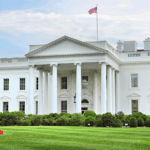The Washington State Supreme Court on Wednesday ended a bitter two-year battle between SEIU 775 and the Freedom Foundation by issuing a unanimous order refusing to hear the union’s last-ditch appeal, meaning thousands of home healthcare providers can now be informed they have the right to opt out of paying all dues and fees if they choose.
Shortly after the U.S. Supreme Court ruled in 2014 that home-based caregivers were not full-fledged state employees and were not subject to compulsory unionization, the Freedom Foundation submitted a Public Records Act request to the Department of Social and Health Services for the names of 30,000 such workers in Washington state.
Rather than complying immediately, the agency contacted SEIU 775, which filed a lawsuit against the Freedom Foundation and DSHS on a variety of grounds.
“SEIU said we were going to use the list for commercial purposes, that we were violating the workers’ privacy … you name it, they charged it,” said Freedom Foundation Litigation Counsel James Abernathy. “In the end, none of it worked.”
The Freedom Foundation won on the merits of the case at the Superior Court and the Appeals Court levels, and overcame a torrent of frivolous motions from the union designed to delay compliance.
Wednesday’s ruling was the last gambit in the union lawyers’ playbook.
“Nothing they tried worked because we were right all along,” Abernathy said. “The list is public information. It was public information when the union requested it in 2003 to unionize the workers and it’s public information now that someone wants to tell them the truth about their constitutional rights.”
“We expect to obtain the names immediately so we can tell these hard-working people what their union is so afraid of them learning,” he said.
“This is a resounding victory for transparency and the Public Records Act,” added Freedom Foundation Litigation Counsel David Dewhirst, who argued the case before the Court of Appeals. “It’s a huge victory for the Freedom Foundation, but even more, it’s a victory for the people of this state. The union has a lot of money and an army of lawyers, but ultimately they were unsuccessful in radically weakening our records law, one of Washington’s strongest democratic safeguards.”
Dewhirst agreed with Abernathy that the union’s two-year struggle was never about substance.
“They lost at every level,” he said, “often embarrassingly so. But their aim was never to win—it was to delay for as long as possible. The Freedom Foundation refused to give up because we felt like we owed it to the thousands of caregivers who were waiting to learn of their constitutional rights.
“The union wasted a lot of taxpayer and dues-payer dollars pretending they were trying to protect people’s privacy,” he said. “All along, they were just trying to protect their own bottom line.”
Meanwhile, the unions have almost singlehandedly created and funded Initiative 1501, which will appear on November’s ballot. While I-1501 purports to protect seniors from identity theft, its true purpose is buried in the fine print.
I-1501 would exempt form disclosure under the PRA all information related to caregivers. Not surprisingly, it is funded almost entirely by SEIU.
According to Dewhirst, “I-1501 is the unions’ clear attempt to do at the ballot box what it has been unable to do in the courts or the Legislature — keep workers in the dark about their rights. This victory ensures that thousands of Washington workers will have all the relevant information when they decide whether to join and support their union. Of course, if I were a caregiver, and I learned that my union had been spending my money to keep me in the dark, I think my choice would be clear.”
The point is, now every Washington caregiver will have the right to know they have a choice.












